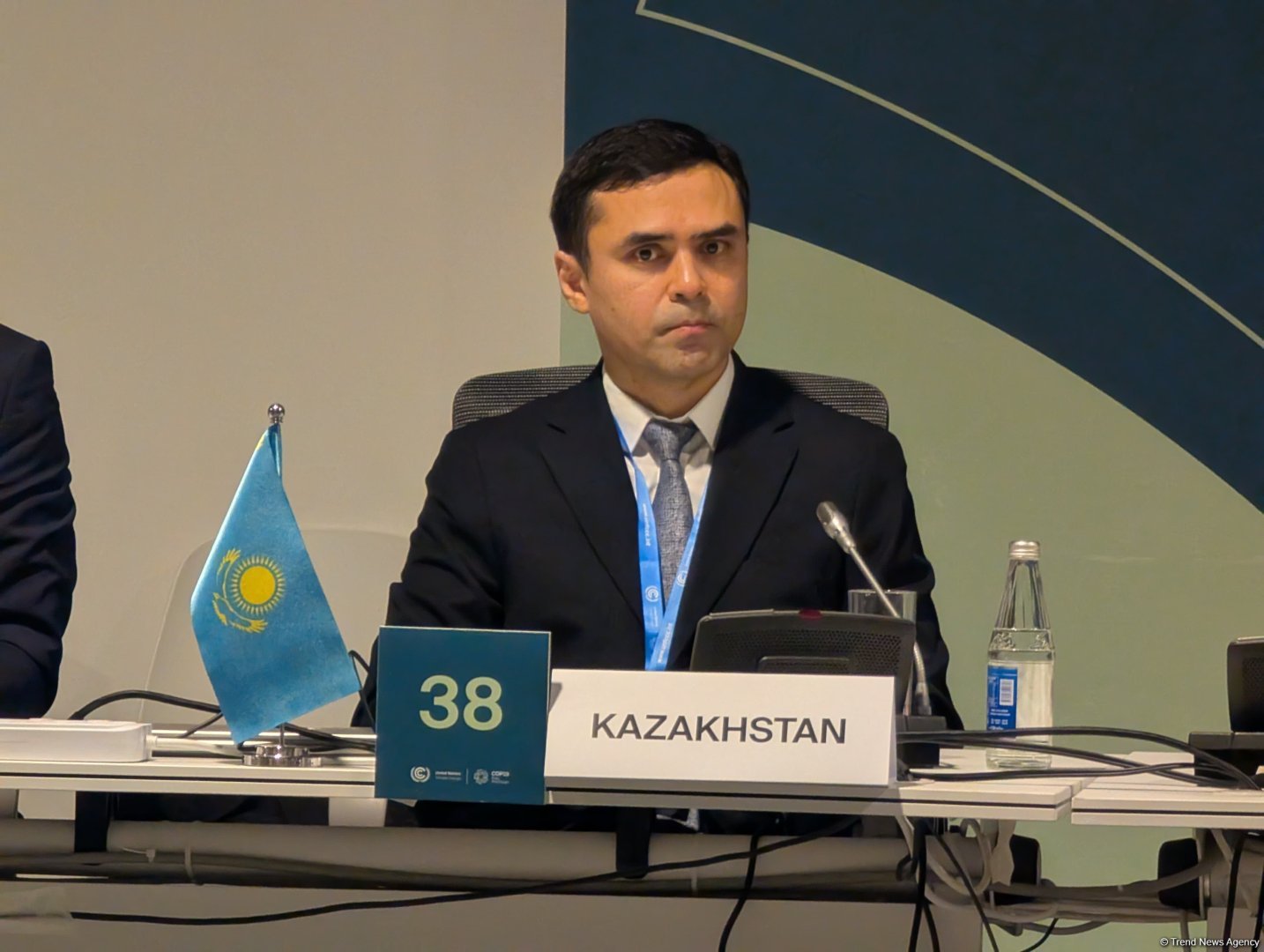BAKU, Azerbaijan, November 20. Kazakhstan prioritizes the sustainability of freight transportation, realizing the environmental and economic impact of transport networks, the director of the Department of Transport Policy of the Ministry of Transport of Kazakhstan, Nurlan Kenesov said at a panel discussion on “Pathways to Sustainable Connectivity: Efforts of CICA & its Member States, and Regional Organizations in Asia for Secure, Effective and Climate-Resilient Transportation Corridors” in Baku today, Trend reports.
“For Kazakhstan, CICA serves as a unique platform to unite participating states in their efforts to strengthen connectivity. For Kazakhstan, as a country without direct access to seaports, efficient and reliable transportation networks are vital for economic growth and regional integration. Our role in promoting connectivity is significant, and Kazakhstan is open to all projects aimed at strengthening ties with neighboring countries and expanding our transit capacity. To achieve these goals, Kazakhstan also attaches great importance to sustainable and reliable infrastructure, and participation in CICA projects is one of the key tools for their realization,” he said.
According to him, Kazakhstan is also prioritizing the sustainability of freight transportation, recognizing the environmental and economic impact of transportation networks.
“In cooperation with international organizations, Kazakhstan seeks to develop a sustainable transport policy that will strike a balance between connectivity and environmental responsibility,” he added.
To note, the 29th session of the Conference of the Parties to the UN Framework Convention on Climate Change (COP29), which will run until November 22, opened at the Baku Olympic Stadium on November 11. It is the largest event organized by Azerbaijan to date, and the first time in the region that it is being held in Azerbaijan.
Within COP29, the highest-level event - the summit of world leaders on climate action - was held on November 12–13.
The main expectation from COP29 is to agree on a fair and ambitious New Collective Quantitative Goal (NCQG) on climate finance. The COP29 Presidency has launched 14 initiatives that include linkages between climate action and the Sustainable Development Goals, including green energy corridors, green energy storage, harmony for climate resilience, clean hydrogen, methane reduction in organic waste, action on green digital technologies, and other topics.
In addition to being a top priority that creates the conditions for action, creating climate finance will also help fulfill the 1.5°C pledge by bringing everyone together.
The UN Framework Convention on Climate Change is an agreement signed at the Rio Earth Summit in June 1992 to prevent dangerous human interference in the climate system. The acronym COP (Conference of Parties) stands for “Conference of Parties” and is the highest legislative body overseeing the implementation of the Framework Convention on Climate Change.
A total of 198 countries are parties to the Convention. Unless otherwise decided by the parties, COP is held annually. The first COP event was held in March 1995 in Berlin, and its secretariat is located in Bonn.
Stay up-to-date with more news on Trend News Agency's WhatsApp channel







